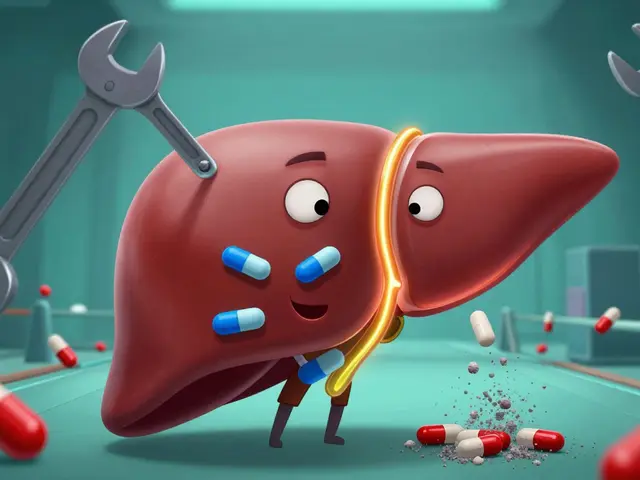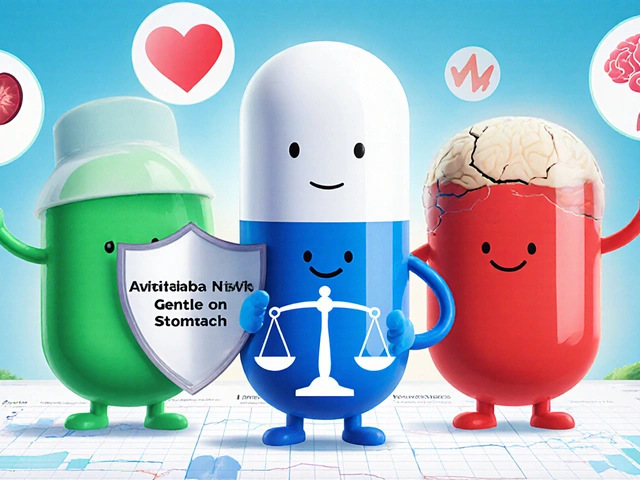Hypothyroidism treatment: what actually helps
Feeling tired, cold, or slow? Those can be signs of an underactive thyroid. The good news: most people get back to normal with the right treatment. This page gives plain, useful steps you can use now—what medicines do, how to take them, how doctors monitor progress, and simple lifestyle moves that help.
Medications and how they work
The standard treatment is levothyroxine (a synthetic T4). It replaces the missing hormone so your body can run normally. Doctors start with a dose based on your weight, age, heart health, and lab numbers, then check blood tests and adjust. Some people don’t feel fully right on T4 alone; for them, doctors may try a combination of T4 and T3 (liothyronine) or, less commonly, desiccated thyroid extract. Those options can help a few patients, but they require careful monitoring and an open conversation about risks and benefits.
Practical tips for taking thyroid meds
Take levothyroxine on an empty stomach, ideally 30–60 minutes before breakfast or at least 3–4 hours after dinner. That keeps absorption steady. Avoid taking it with calcium or iron supplements, antacids, or high-fiber meals — they can cut how much medication your body gets. If you forget a dose, take it when you remember that day; don’t double up the next day.
Expect labs 6–8 weeks after any dose change. The main test is TSH; your clinician may also check free T4 and, sometimes, free T3. Don’t chase symptoms alone—let the labs guide dose adjustments. If you still have symptoms with normal labs, talk to your provider about other causes like vitamin D deficiency, anemia, sleep issues, or mood problems.
Special situations matter. Pregnant people need higher doses and closer monitoring because thyroid needs rise in pregnancy. Older adults and people with heart disease usually start on lower doses to avoid stressing the heart. If you switch brands or pharmacies, ask for a follow-up blood test—different formulations can behave slightly differently.
Diet and supplements: don’t overdo iodine. Too little hurts thyroid function, but too much can also cause problems. Selenium in small amounts may help some people, but discuss supplements with your doctor before starting. Regular exercise, good sleep, and a balanced diet help symptoms and recovery, especially energy and weight control.
When should you see a doctor? If symptoms get worse, you become pregnant, you experience chest pain, fast heartbeat, or fainting, seek care promptly. Routine follow-ups are simple but powerful: the right dose and steady checks are what return most people to a normal life.
Want a quick next step? If you suspect hypothyroidism, ask your clinician for a TSH and free T4 test and bring a list of your symptoms and current supplements. That makes the first visit straightforward and useful.

Find the Best Deals on Synthroid: Your Complete Guide to Levothyroxine Savings
This comprehensive article explores various aspects of finding the best Synthroid deals, understanding its medical implications, side effects, drug interactions, and advisable dosages. It provides valuable insights and practical advice for individuals dealing with hypothyroidism and those seeking ways to manage their Synthroid medication expenses effectively. Whether you're a new patient or looking for more affordable options, this guide lays down everything you need to know about Synthroid and its generic counterpart, Levothyroxine.
Categories
- Medications (70)
- Health and Medicine (60)
- Health and Wellness (36)
- Online Pharmacy Guides (16)
- Nutrition and Supplements (8)
- Parenting and Family (3)
- Environment and Conservation (2)
- healthcare (2)
- prescription savings (1)
Popular Articles



